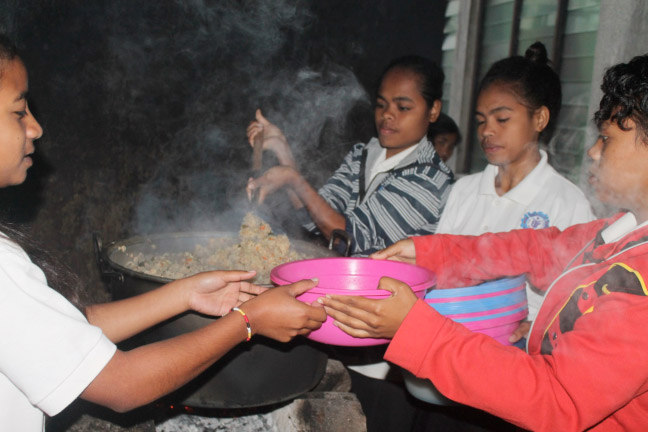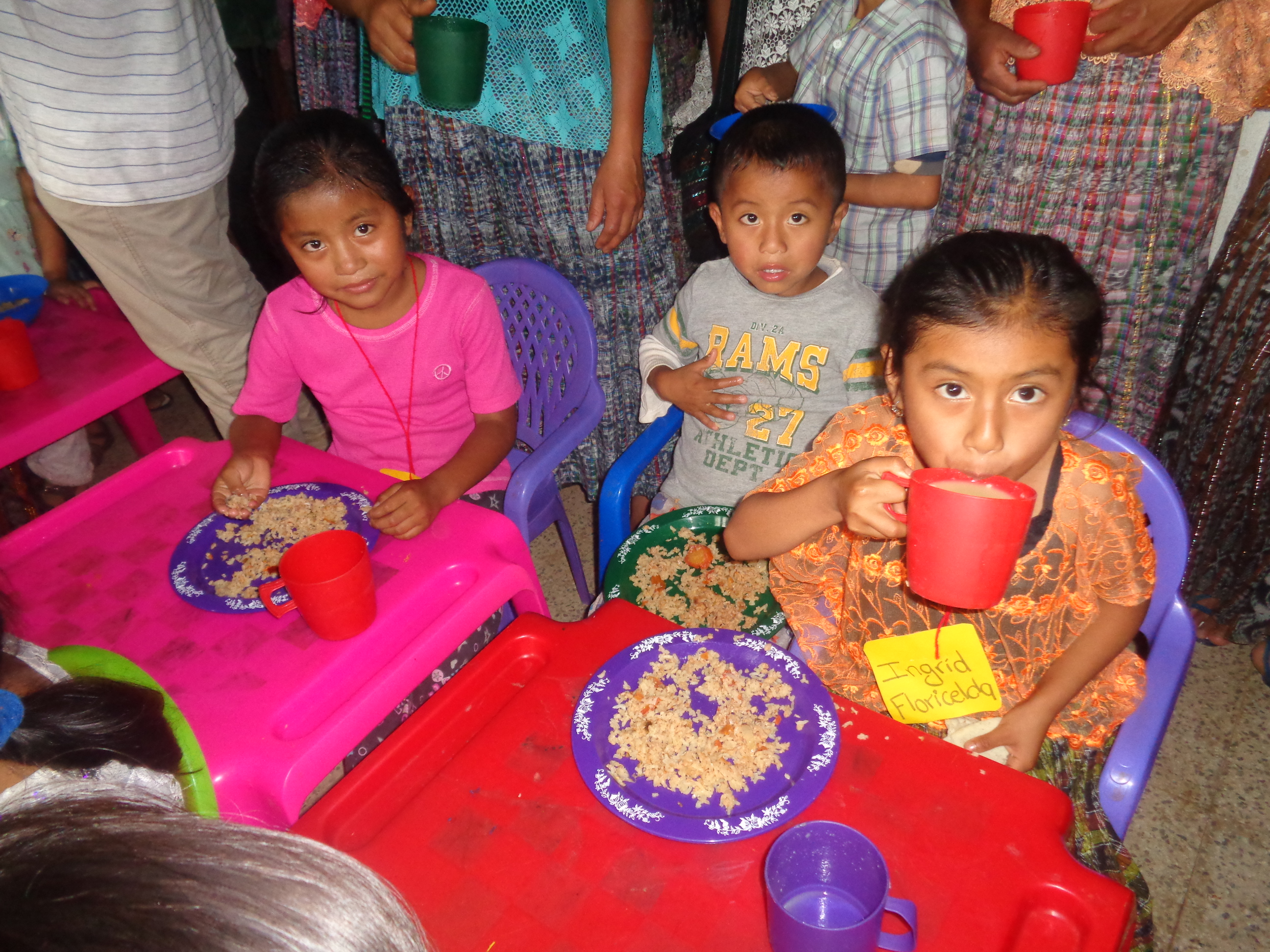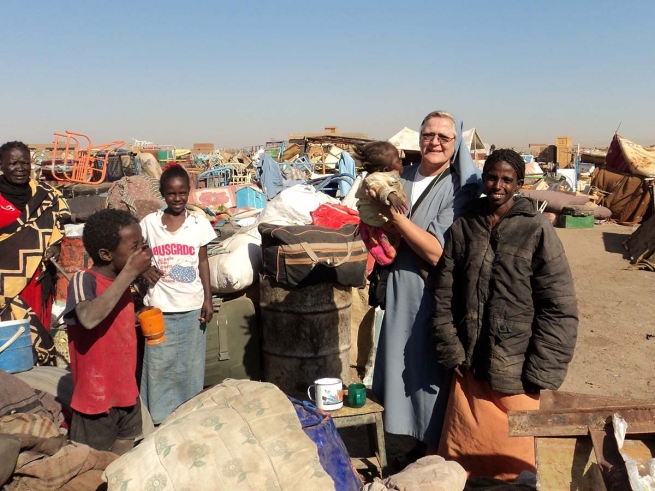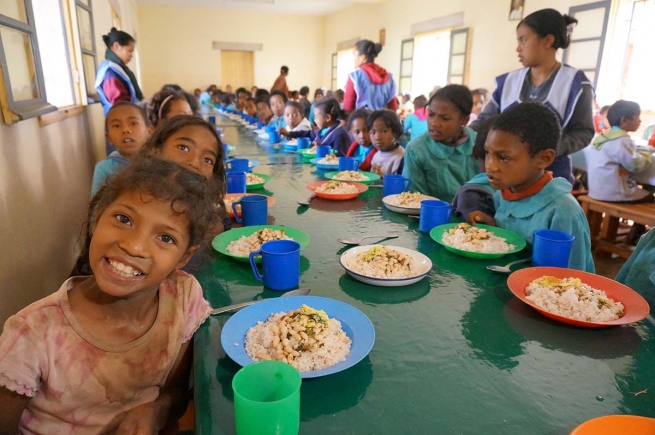EAST TIMOR: Donation of Nutritious Rice-Meals by Stop Hunger Now Benefits More than 1,100 Youth

(MissionNewswire) More than 1,100 students participating in Salesian programs run by the Daughters of Mary Help of Christians have access to better nutrition thanks to a recent donation of fortified rice-meals. Offered at orphanages, boarding homes, schools and a medical facility spread across six towns and villages in East Timor, 11 programs were the recipients of the donation which was made possible through an ongoing partnership between Salesian Missions and Stop Hunger Now, an international relief organization that provides food and life‐saving aid to the world’s most vulnerable.
Through the programs, Daughters of Mary Help of Christians provide for the basic needs of young East Timorese including housing, nutrition, clothing and education. Educational programs aim to impart life skills such as responsibility, self-discipline and organization in addition to offering traditional schooling that enables students to advance to technical and skills training programs to prepare for the workforce.
East Timor has endured a decades-long civil war and is home to 1.1 million people. According to the United Nations Development Program’s Human Development Index, in 2014, East Timor ranked 128 out of 187 countries for life expectancy, access to education and standard of living. The World Bank estimates that East Timor has just over 49 percent of its population living in poverty with over one-third of the population regularly experiencing food shortages.
Salesian missionaries in the country have been providing programs to help residents recover and rebuild in the wake of the devastating civil war that claimed countless lives, decimated entire communities and resulted in living conditions that are among the worst in the world. Since the violence has subsided, efforts are being focused on helping the needy, restoring hope and providing new opportunities for the future.
“Salesian missionaries offer a wide range of programs that work to improve the lives of the people of East Timor,” says Father Mark Hyde, executive director of Salesian Missions, the U.S. development arm of the Salesians of Don Bosco. “Poor youth and their families receive support at community health centers, orphanages, parishes and youth centers. In addition, classes are conducted in primary, secondary, technical and agricultural schools – many of which provide room and board to their students.”
Access to nutritious meals allows youth to be better prepared to take part in school activities and focus on their education. Prepared students are more likely to learn valuable skills that will help them gain employment, break the cycle of poverty in their lives and give back to their communities.
“Feeding hungry children is often the first step to providing an education,” adds Fr. Hyde. “Once children have their most basic needs met, they are then able to concentrate on their studies and further their education.”
Stop Hunger Now partners with Salesian Missions (in New Rochelle, N.Y.) which works to identify needs and coordinate delivery of 40-foot shipping containers full of meals, supplemented with additional supplies when available. The partnership was developed in 2011 and since that time, more than 60 shipping containers, including more than 16 million rice-meals, have been successfully delivered to 19 countries around the globe. The meals and life-saving aid has helped to nourish poor youth at Salesian schools and programs and care for those in need of emergency aid during times of war, natural disasters and health crises.
“The partnership with Stop Hunger Now allows Salesian Missions to expand the scope of services to youth in need,” says Jessica O’Connor, property and logistics officer at the Salesian Missions Office for International Programs. “Operating feeding programs for youth in Salesian schools whose families cannot afford to feed them is very important and integral to the success of our students and their ability to gain an education.”
###
Sources:
World Bank – East Timor




